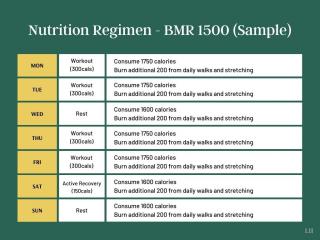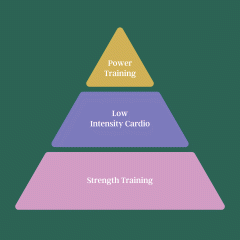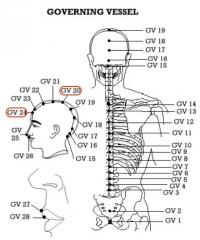“What’s the meaning of life?”
is one of the most fundamental and enduring questions which has captivated the greatest minds of mankind for centuries.
The answers, as varied as they come, go back to the very, very beginning of things—to our existence, to the reasons why humans were created, to our quest for self-improvement, and, of course, to religion.
There is hardly a shortage of interpretations of what the “good life” is about, what makes us happy and fulfilled, and what we can do to get to this coveted state.
If you talk to a scientist—say, a physicist and biologist, about the purpose of our being, they will likely tell you the fascinating story of the Big Bang, the origins of universe’s existence, and the evolution of the species to where we are today.
But evolution is not what really drives us and makes us to want to keep living and persisting through life’s adversities, is it? It is a whole lot more than this. It is what makes us human—our minds, our sense of self-awareness, our ambitions, dreams and goals.
So, when you ruminate on your reasons for being, you should actually think along the lines of your values, progress, community, family, and, yes—reproduction.
What Wise Men Through History Believed a Life of Meaning to Be
Before we unpack these elements of meaning, let’s take a step back and see what wise men through history believed a life of purpose to be.
The Greeks
The ancient Greeks believed in the concept of “eudamonia” which translates as “happiness” or “welfare.” All the great Greek philosophers—Socrates, Plato, Aristotle— believed that the good life means to live in a state of eudaimonia. The interpretations of what it means vary. Some used to think that purpose can be found in acquiring virtues (as self-control, courage, wisdom).
Aristotle, for instance, believed that eudaimonia required not only a good character, but taking actions and achieving excellence. Epicurus—another prominent Greek—understood the good life as one of pleasure and freedom from pain and suffering.
Cynicism
The famous Greek school of thought believed that the purpose of life is living a life of Virtue which agrees with Nature. The happy life is the simple one, they taught—free from possessions, rejecting the desires for wealth, possessions, fame or sex. Rather, people should undergo rigorous training and live in a most natural to them way.
Stoicism
The Stoic school of thought, found by Zeno of Citium around 300 B.C. considered the good life to be “living in agreement with nature.” Stoicism advocates doing good while staying calm, focusing on what’s important and under our control, not wasting thoughts on what we can’t affect.
Happiness is:
“found in accepting this moment as it presents itself, by not allowing ourselves to be controlled by our desire for pleasure or our fear of pain, by using our minds to understand the world around us and to do our part in nature’s plan, and by working together and treating others fairly and justly.”
Theism
Theists believed in the existence of a deity—a God, who created the universe. Our life’s purpose, then, is aligned with God’s purpose in creating the universe and it is God that gives our lives meaning, purpose and values. Without Him, life will be empty.
Existentialism
According to this 20th century philosophy, supported by famous minds as Søren Kierkegaard, Fyodor Dostoevsky, Jean-Paul Sartre, Friedrich Nietzsche, all human beings have free will. It’s believed that each person gives meaning to their own life, not the society or religion. Therefore, everyone’s purpose is unique and subjective to their circumstances and understanding.
Or, simply put, our lives’ meaning is what we decide it to be.
What Creates Meaning for Your Life?
Based on the above brief walk through history, it seems that the interpretation of what infuses our existence with meaning and purpose somewhat varies depending on the historical period and the school of thought.
But undeniably, there are still some commonalities and recurring ideas. Our reason for being emerges as something greater than ourselves—such as serving God’s will or contributing to society. At the same time, it’s all nuanced because it’s refracted through our individual prisms.
Still, the things that may be good candidates for meaning-creators in our lives can be separated in few main categories, as I wrote recently:
Social
As human beings are social creatures, we have an innate need to connect to others, to be part of a group, to sense that we belong, and that we have someone who cares about us.
According to the longest study on happiness and life satisfaction—which spanned over 75 years, the good life lies in the quality of our relationships. “Time with others,” Prof. Waldinger, who led the research tells us, “protects us from the bruises of life’s ups and downs.”
But it’s not only our friendships that make life worth living. It’s our families, children, siblings. It’s all the people who we feel love and affection for and who, in turn, give us theirs.
Achievement
Although tying our worth solely to the outcome of our endeavors can create an unstable sense of self-esteem, we still want the net of our successes to outnumber that of our failings. We want to sense that we are moving forward, progressing, realizing our goals. Studies have found that achievements bring greater meaning to our everyday lives.
And it’s not the lure of the limelight or the desire for kudos that will make our existence worthwhile. It’s the recognition of our efforts, the appreciation, the acknowledgement that counts. In other words, we want our actions to matter and make a difference.
Competence, Knowledge and Expertise
These purpose-drivers are closely linked to the concept of achievement.
Konrad Lorenz, the Austrian Nobel Prize winner, best known for his principle of attachment, once said:
“Life itself is a process of acquiring knowledge.”
Becoming the best at what we do is a large part of the self-improvement movement today. It’s perhaps most famously expressed in the Japanese notions of kaizen and shokunin. Kaizen is the process of continuous improvement—through leaning and gaining expertise, to better ourselves. It’s a way of life.
Shokunin means craftman. And it’s about taking pride in what we do and in ourselves. It’s the drive to become better—personally and professionally.
How to Craft Your Own Purpose of Life
In reality, though, there are many more shades and understandings of a life well-spent than the three categories listed above.
Here are some further ideas on where to look for your own sense of purpose and fulfillment.
1. Be Aware of What Makes You Happy
This includes your passions, the desire for connecting to others, for reading, writing, travelling, staying in shape. These activities that you enjoy, although they may not give you The One Meaning of your life, still carry a great potential to make you fulfilled and happy.
They are spurs of joy. You can call them mini-meanings, which, over time, may contribute to your bigger goals and purpose.
But today, they will still offer you something to look forward to, a reason to wake up in the morning. And who’s to say “no” to this?
2. Reproduction
Evolutionary biology provides us with the very primal reason behind our existence on Earth as humans—to ensure that the human race doesn’t become extinct. That is, meaning comes down to survival and continuance of our kin.
In this vein, having children and family is often at or near the top spot when people talk about what makes life worth living. This is also liked to our basic need to belong, to have someone to share our successes with, to have a shoulder to cry on, to care about.
3. Desire to Leave a Mark in the World
With the realization of the transience of our lives comes a natural desire to create something of value to leave to the world, to matter in some way, to make a difference.
We all have the capacity to influence others’ lives—some on a smaller scale than others, true, but regardless—it’s the intention and the actions that matters. You can begin with one small thing—whatever it is that matters to you and build on it.
For instance, you like animals. Adopt a puppy—give them a better life. You can also volunteer at your local food shelter, or start separating your garbage to help the planet.
It is as Mother Teresa once said:
“We can do no great things, but small things with great love.”
A meaningful life is about caring.
How to Lead a Meaningful Life
1. Be Compassionate and Care About Yourself
Per research by the British National Health Service in 2014, there are five steps we can take to lead more meaningful lives:
Connect with community and family Physical exercise Lifelong learning Giving to others Mindfulness of the world around you.What these recommendations imply is that what brings sunshine into our lives is finding the ways to care about ourselves and to do what makes us feel good.
There is barely a need to convince you of the benefits of giving and meditations—these are well established—to both our physical and mental health.
Being kind, compassionate and help others are, indeed, the winning behaviors to an increased longevity, decreased stressed and depression. So that we can also experience life in all its colourfulness.
2. Make Yourself Useful
According to Darius Foroux —a famous entrepreneur, author and influencer, the meaning of life is not to seek happiness, but to make ourselves useful.
“It comes down to this — what are you DOING that’s making a difference?”
Rather than seeking happiness and meaning through the material things, we must engage in acts of usefulness—to help and make others happy, to create something.
“The last thing I want is to be on my deathbed and realize there’s zero evidence that I ever existed.”
3. Connect with the World
Another influencer—Alain de Botton, the founder of the famous blog The School of Life, believes that the meaning of life comes down to three activities:
Communication Understanding Service“Some of our most meaningful moments are to do with instances of connection,” he writes, be it to a person, song or a book, for instance. It takes us out of our isolation. Understanding is our ability to make sense of the world. And service is to work on improving others’ lives.
4. Use the PURE Model
Finally, Peter Wong—a Canadian existential psychologist, has proposed a model, known as PURE for individuals to discover meaning in their lives:
P stands for purpose and having worthy goals. U denotes understating—of who we are and of the world around us. R means that we have sole responsibility to choose the life we want and to own our actions and their consequences. E is the need for evaluation, to ensure we are on track with our goals.Therefore, as you can summon, there are many avenues you can explore that will bring you a sense of purpose. It’s true that you may sometimes feel that your actions are just a drop in the ocean, that you are too small to make a difference.
But it’s not true.
Meaning is about bringing out the best in you, about doing good by yourself and others. And if we all commit to the goal of improving ourselves and the world we live in—as cliché as it sounds—and we truly believe it, then collectively—the single drop can grow up to become a wave.
Summing It All Up
The quest for meaning in our lives is perhaps the most important driver behind everything that we do. It’s the reason behind all reasons.
Some of the most prominent ways to build your purpose is by creating your own tribe; by striving to become a better version of yourself; by helping and serving others, and by setting goals and striving to achieve them.
What makes it challenging to put our finger on what purpose means exactly is that it’s a rather vast concept. It can be interpreted as many things by each one of us.
But then, maybe, there is no One and Only Meaning in life. Perhaps a better way to view our purpose and existence is more as a mosaic—each experience, each facet in our lives—family, friends, achievements, recognitions—constitutes a piece. You have to look at it in its totality to be able to say if you are happy with the picture you yourself have painted.
Or, perhaps, it is as Viktor Frankl said:
“The meaning of life is to give life meaning.”
And each of us has the freedom to decide on what this is.
More Inspirations About the Meaning of Life
Featured photo credit: Donald Giannatti via unsplash.com





























































